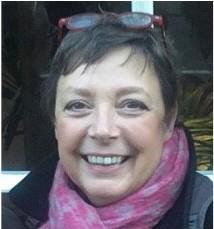Our May Immunologist Month is Dr Pascale Kropf an Associate Professor at Imperial College London in the UK and an Honorary Member of the University of Gondar in Ethiopia. Her research is focused on immunity to leishmaniasis and she also has many educational interests.
Dr Pascale Kropf has worked in many prominent research centres including the WHO Immunology Training and Research Center at the University of Lausanne (Switzerland), The University of Notre Dame (USA), The London School of Hygiene & Tropical Medicine (UK) and currently spends her time between the UK and Ethiopia.
She has established a fruitful collaboration with Immunopaedia and the International Union of Immunological Societies (IUIS) to promote Immunology without Borders in Ethiopia (Immuno-Ethiopia; funded by the Bill & Melinda Gates Foundation). Dr Pascale Kropf is currently working in Ethiopia with support from both The Wellcome Trust and The Medical Research Council.
Name: Pascale Kropf
Current position: Associate Professor in Immunology
What are your research interests and why? Cutaneous and visceral leishmaniasis. I have always loved biology, but to get to where I am today was a complete accident. I first became a technician and I had the incredible chance to go and work at the WHO in Switzerland, there I worked with Dr Ingrid Müller who became my mentor and later on my supervisor. She pushed me into independent thinking and then gave me the chance to do Masters and then a PhD. Her extraordinary support contributed a lot to where I am today. A good mentor, a good supervisor, hard work, persistence and a bit of luck, all were keys to my success.
What made you become interested in working in Ethiopia? I’ve always wanted to go and work in low and middle income countries in Sub-Saharan Africa. As a Technician, I did look into working with Medecins Sans Frontieres. So working at the WHO on leishmaniasis gave me the opportunity to eventually realise this dream.
During my RCDF from The Wellcome Trust, I produced data in an experimental model of leishmaniasis that I wanted to translate to human disease. Armed with this data, I contacted Professor Asrat Hailu at Addis Ababa University. I had first met Professor Asrat Hailu many years ago at the WHO when he was in Switzerland on a course. After hearing my research proposal, he supported me in facilitating my research in Addis Ababa and Gondar. We are still collaborating to this day.
What has been your proudest achievement to date? My proudest achievement to date is definitely to have initiated projects, set up labs in Ethiopia and train Ethiopian students; this is by a million miles my proudest professional achievement. Through the past 10 years in Ethiopia, I have met and been able to work with some amazing individuals, notably Yegnasew Takele who is central in all my current work in Ethiopia and many, many students who have given more than 100% and have inspired me in this journey.
Do you have any advice for future, budding immunologists? This is actually advice that Professor Debbie Smith gave to me a few years ago, it is that when you are hit and you fall on the floor, you need to stand up and try again. It is like this sentence I saw at the end of a recent movie on Winston Churchill:
“A victory is not final,
Failure is not fatal,
It is the courage to continue that counts.”
For a short introduction into leishmaniasis, you can hear Dr Pascale Kropf’s lecture.
Interview by Bea Choi











